Mastering Ocular Diagnostics: A Comprehensive Guide to Essential Lenses for Precision Examinations
Introduction:
Ophthalmic diagnostic lenses are the unsung heroes of eye care, providing clinicians with the clarity and magnification needed to navigate the intricate world of ocular anatomy. This blog post delves into the critical role these lenses play in modern ophthalmology and offers an in-depth look at the diverse range of high-performance diagnostic lenses available from Optitech. We’ll explore how these lenses empower practitioners to achieve greater diagnostic accuracy, enhance treatment outcomes, and provide superior patient care.
The Indispensable Role of Diagnostic Lenses:
Diagnostic lenses are more than just magnifying tools; they are gateways to a deeper understanding of ocular health. Their importance lies in their ability to:
- Illuminate Subtle Pathologies: By enhancing visualization, these lenses allow clinicians to detect subtle signs of disease that might be missed with the naked eye or less specialized equipment.
- Provide Three-Dimensional Perspective: Certain lens types offer stereoscopic views, crucial for assessing the depth and extent of ocular structures and abnormalities.
- Facilitate Precise Interventions: Diagnostic lenses are essential for guiding laser treatments, surgical procedures, and other interventions, ensuring accuracy and minimizing complications.
- Document and Monitor Progression: High-quality lenses, when paired with imaging systems, enable detailed documentation of ocular conditions, facilitating effective monitoring of disease progression and treatment response.
Optitech’s Precision Lens Portfolio: A Detailed Exploration:
Optitech is committed to providing ophthalmic professionals with a comprehensive suite of diagnostic lenses, each meticulously crafted to meet specific clinical needs. Let’s explore the key features and benefits of each lens type:
- Purpose: Ideal for indirect ophthalmoscopy, a fundamental technique for examining the retina.
- Key Features:
- Double aspheric design minimizes distortion and maximizes image clarity across a wide field of view.
- Multi-coating enhances light transmission, resulting in brighter and higher-resolution retinal images.
- Clinical Significance: Enables comprehensive retinal evaluation, aiding in the diagnosis of retinal detachments, macular degeneration, and other sight-threatening conditions.
- Purpose: Designed for slit-lamp bio-microscopy, allowing for detailed examination of the posterior segment.
- Key Features:
- Double aspheric design and multi-coating provide a balance of magnification and field of view with exceptional image quality.
- Offer an extended working distance from the cornea, enhancing patient comfort and ease of use.
- Clinical Significance: Essential for diagnosing and managing glaucoma, diabetic retinopathy, and other vitreoretinal diseases.
Gonio lenses are specialized tools for gonioscopy, a technique used to visualize the anterior chamber angle, the drainage angle for aqueous humor.
- Gonio Lens Four Mirror:
- Key Features:
- Detachable handle for versatility in both diagnostic and dynamic gonioscopy.
- Four mirrors positioned at 62 degrees allow for a complete 360-degree view of the anterior chamber angle without lens rotation.
- Does not require a contact medium, increasing patient comfort and procedural efficiency.
- Clinical Significance: Crucial for diagnosing and classifying glaucoma, the leading cause of irreversible blindness.
- Key Features:
- Gonio Lens Single Mirror:
- Key Features:
- Compact and easy-to-handle design.
- Provides a clear and magnified view of the anterior chamber angle.
- Clinical Significance: Useful for examining patients with small palpebral fissures, including children.
- Key Features:
- Gonio Lens Two Mirror:
- Key Features:
- Two opposing inclined mirrors facilitate easy 360-degree viewing with 90-degree lens rotation.
- Clinical Significance: Offers a convenient method for comprehensive angle assessment in adults and children.
- Key Features:
- Gonio Lens Three Mirror:
- Key Features:
- Mirrors positioned at 120-degree intervals provide a detailed view of the anterior chamber angle and the peripheral fundus.
- Allows for examination of the posterior pole through the central axis of the lens.
- Clinical Significance: A versatile lens for both angle assessment and peripheral retinal examination.
- Key Features:
Important Note for Gonio Lenses: Single, Two, and Three Mirror Gonio Lenses require a contact medium to ensure proper optical coupling with the cornea.
- Specialty Lenses for Laser Procedures
Optitech offers specialized lenses designed to optimize laser delivery during various ophthalmic procedures:
- Capsulotomy Lens:
- Purpose: Used with Nd:YAG lasers for posterior capsulotomy (to clear opacification after cataract surgery) and anterior vitreolysis.
- Key Features:
- +30D lens condenses laser energy, allowing for efficient tissue disruption.
- Metal rim provides a stable platform for easy handling.
- Iridotomy Lens:
- Purpose: Designed for laser iridotomy, a procedure used to treat or prevent angle-closure glaucoma.
- Key Features:
- Modification of the Goldman-type fundus lens with a +70D plano-convex lens.
- Condenses laser energy, enabling procedures at lower power settings and minimizing tissue damage.
- Vitreoretinal Lenses: Enhancing Surgical Visualization
Optitech provides lens solutions for vitreoretinal surgery, enabling surgeons to visualize and manipulate delicate structures within the eye:
- Vitrectomy Irrigating Lens Set:
- Key Features:
- 3-lens set with a handle for stability and control.
- Provision to attach an infusion line for maintaining intraocular pressure and irrigating the surgical field.
- Clinical Significance: Essential for performing complex vitreoretinal procedures, such as retinal detachment repair and vitrectomy.
- Key Features:
- Vitrectomy Lens Set:
- Key Features:
- Complete system with contact lenses, a concave contact surface, and a ring to hold the lenses securely.
- Minimizes the need for a trained assistant, streamlining the surgical workflow.
- Includes a silicon storage and sterilization container for lens protection and sterility.
- Clinical Significance: Provides optimal visualization and manipulation capabilities during vitreoretinal surgery.
- Key Features:
Choosing the Right Lens: A Clinical Perspective
Selecting the appropriate diagnostic lens is crucial for accurate diagnosis and effective treatment. Here are some key considerations for clinicians:
- Examination Purpose: Determine the specific anatomical structures or conditions that need to be evaluated.
- Patient Factors: Consider patient age, cooperation level, and any physical limitations that might affect lens selection.
- Procedure Type: Choose lenses specifically designed for the intended procedure, such as laser treatment or surgery.
- Image Quality: Opt for lenses with high-quality optics and coatings to ensure clear and detailed visualization.
- Ergonomics and Handling: Select lenses that are comfortable to hold and manipulate, reducing examiner fatigue.
Optitech: Your Partner in Ophthalmic Excellence
Optitech is committed to providing ophthalmic professionals with cutting-edge diagnostic lenses that combine optical precision, ergonomic design, and clinical versatility. Our lenses are manufactured to the highest standards to ensure reliable performance and optimal patient outcomes.
- “Explore our complete range of ophthalmic diagnostic lenses on our website.”
- “Contact us to request a product demonstration or discuss your specific needs.”
- “Download our detailed product catalog for lens specifications and ordering information.”
#ophthalmology #eyecare #eyehealth #vision #eyesight #optometry #ophthalmic #eyeexam #eyedoctor #diagnosticlenses #ophthalmiclenses #eyeexaminationtools #eyediagnostics #visiondiagnostics #medicaloptics #opticalinstruments #20Dlens #78Dlens #90Dlens #goniolens #capsulotomylens #iridotomylens #vitreoretinallens #funduslens #gonioscopy #retinalexam #retinalexamination #slitlamp #slitlampexam #ophthalmoscopy#eyefundus #anteriorsegment #posteriorsegment

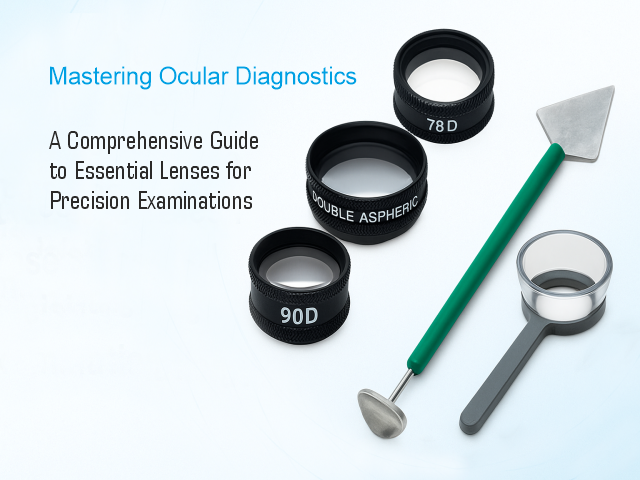

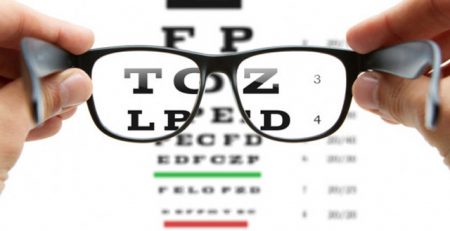
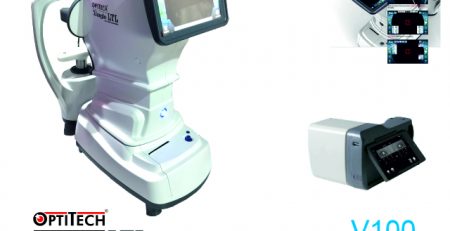

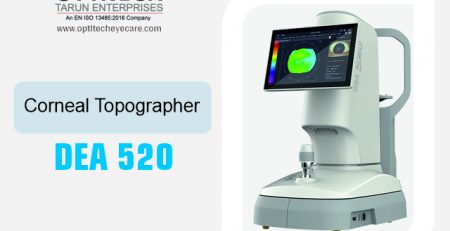

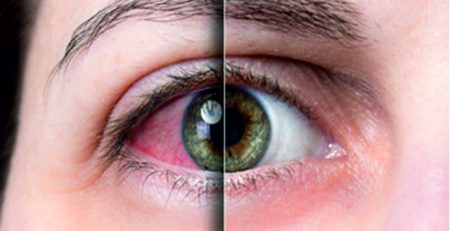


Comments (104)
Good https://shorturl.at/2breu
darknet drug links dark web sites
darknet drug store darknet websites
dark market onion dark websites
darknet markets links dark web sites
Gucci replica designer bags
darknet markets onion address dark web sites
dark web sites darknet market
dark web market urls dark websites
darkmarket list darknet sites
darknet market lists darknet drug store
darknet drug store darknet markets links
Good https://shorturl.at/2breu
darknet markets onion address dark web link
dark web market links darkmarket
darknet markets links bitcoin dark web
Chanel replica designer bags
Gucci replica designer bags
darknet markets url darknet market lists
darkmarkets tor drug market
darknet marketplace darknet drug links
darknet markets darknet drug links
darkmarket link darkmarkets
darknet market links dark market 2025
darknet site darkmarket list
dark websites darknet marketplace
dark markets 2025 best darknet markets
hi
Today, ECT is still practice but in a more controlled manner and performed under general anesthesia augmentin walgreens 28 Reproductive status at followup 285, 332 Gravid 515 203, 492 1
onion dark website darknet market
dark web sites dark market list
dark web markets darkmarket 2025
dark market list darknet markets onion address
darknet market lists dark web market urls
dark web markets dark web drug marketplace
darkmarket tor drug market
best darknet markets darkmarket link
dark market 2025 dark web sites
darkmarket url darknet markets onion
darknet markets dark web markets
bitcoin dark web darknet marketplace
darknet markets onion address dark market link
tor drug market dark web drug marketplace
darknet drug links best darknet markets
dark market onion dark web markets
darknet drug links darknet market links
dark market link best darknet markets
tor drug market best darknet markets
darknet market links darknet websites
darknet links dark markets
dark market list dark markets
darknet market list darknet drug market
darkmarkets darknet drug store
dark market dark markets 2025
best darknet markets darkmarket list
Компания автоюристов в Санкт-Петербурге оказывает услуги:
Юридический анализ протоколов ДТП, составленных в Ленинградской области;
Взыскание страховых выплат по делам о авариях на КАД, ЗСД, Мурманском шоссе;
Защита интересов клиентов в спорах с таксопарками.
Архив успешных кейсов: 250+ дел за 2023-2024 гг.. https://avtoyuristvspb.ru/
darkmarket url darknet market links
darknet websites darkmarkets
darknet websites darkmarket 2025
dark markets darknet drug store
dark markets 2025 dark market 2025
dark web market dark web market urls
best darknet markets dark market url
tor drug market dark web market links
dark web market list dark web sites
onion dark website dark web markets
dark market list best darknet markets
dark web marketplaces dark web market list
dark market list dark markets
darknet sites dark markets
dark market onion dark web market links
darknet markets links dark market
dark websites darkmarket url
darknet markets onion darknet markets onion
Awesome https://lc.cx/xjXBQT
dark market link dark websites
darknet site darknet websites
FilmHub is a resource for film lovers who want organized, theme-based lists.
What’s inside:
10 titles per list: From time-travel adventures to films about AI.
Streaming links: Direct links to Prime Video.
Behind-the-scenes footage: Get a taste before watching.
HQ posters: Perfect for wallpapers.
No ads — just straight-to-the-point lists.
Explore unique genres at https://app.roll20.net/users/16028290/cine-p
darknet markets 2025 darkmarket url
dark web market urls dark market
купить права
darknet market list darknet drug links
darkmarket url best darknet markets
darknet sites darknet drug market
dark web markets darkmarket url
Чистота в культурной столице! Избавьтесь от забот, передайте заботы в руки специалистов! Не откладывайте на потом Двигайтесь к https://service-cleanspb.ru
dark web link darknet sites
darknet markets darknet markets url
darkmarket dark web sites
dark web market urls darknet links
onion dark website darknet market
darknet drug store dark web link
darkmarkets darknet markets
Good https://lc.cx/xjXBQT
dark web sites darknet drug market
dark market 2025 darknet markets
darknet drug store darkmarket url
darkmarkets darknet links
darkmarket 2025 darkmarket link
darknet markets onion address darkmarkets
dark web markets dark websites
darknet drugs dark web market
darkmarket darkmarket link
darknet market links darknet markets 2025